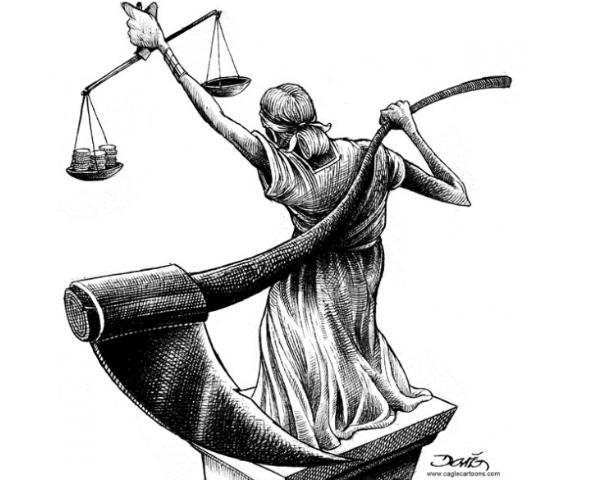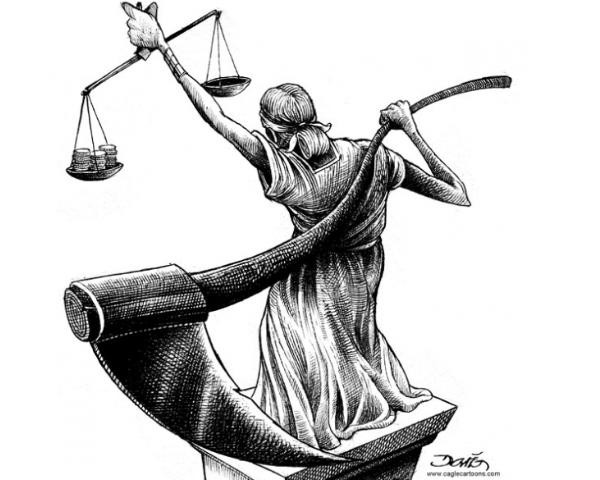This past May, Nebraska proudly joined eighteen other states in abolishing the death penalty. [ref] “Nebraska Bans Death Penalty, Defying a Veto,” New York Times, May 27, 2015, http://www.nytimes.com/2015/05/28/us/nebraska-abolishes-death-penalty.html [/ref] The victory comes after multiple years of failure to pass legislation through state congress, and an eventual showdown between congressional members and the governor, ending with a veto override. The death penalty, also known as capital punishment or execution, is argued to serve as a deterrent to the most heinous of crimes, and as a punishment for the most violent of violations against another human. But for many others, the death penalty has been a moral and ethical dilemma, where its application is determined by the location of the crime as well as the gender and race of the accused, let alone an estimated that one in twenty-five executions wrongfully sentences an innocent person to death. [ref] Pema Levy, “One in 25 Sentenced to Death in the U.S. Is Innocent, Study Claims,” Newsweek, April 28, 2014, accessed June 3, 2015, http://www.newsweek.com/one-25-executed-us-innocent-study-claims-248889 [/ref] When we examine both sides of capital punishment, we see the Vendetta – Is the death penalty capable of mended to safe-guard the innocent and apply justice fairly, or is the practice so morally bankrupt that it is beyond reform and demands repeal?
The United States stands as the last remaining industrialized Western nation to sentence murders to death. Capital punishment has been abolished in all but two European countries — Belarus and Kazakhstan — since the 2000 European Union’s Charter of Fundamental Rights. Despite the shared philosophical and ethical values between the E.U. and the U.S., the latter continues to apply the death penalty at both the national and state level. With their continual use of capital punishment, the United States finds itself in the company of Afghanistan, China, India, Iran, Iraq, North Korea, Pakistan, Saudi Arabia, and Yemen; countries not normally heralded for their dedication to human rights.
Proponents of capital punishment argue that, legally, capital punishment provides the only adequate punishment for a convicted murderer. In a publicly held debate, [ref] “Abolish the Death Penalty,” Intelligence Squared Debates, April 15, 2015, accessed June 3, 2015, http://intelligencesquaredus.org/debates/upcoming-debates/item/1254-abolish-the-death-penalty [/ref] New York Law School professor and retributivist advocate for the death penalty Robert Blecker unabashedly argued that some people just deserve to die. Certain crimes are so vile, so heinous, that anything less than the “worst of the worst” is a mockery of justice. Blecker’s debate partner, Kent Scheidegger, addressed concerns people have with capital punishment, such as its arbitrary application and sentences having seemingly racial or gender biases, by suggesting that the death penalty be reformed, not repealed, or rather that it be “mended, not ended.”[ref] Kent S. Scheidegger, “Mend It, Don’t End It,”April, 2011, accessed June 2, 2015, http://www.cjlf.org/deathpenalty/ConnDPReport2011.pdf [/ref]
For abolitionists reform is not enough; the death penalty must be ended. Arguments that capital punishment deters people from violent crime are repeatedly refuted by significantly lower rates of murder in states that have abolished the death penalty and in the aforementioned European Union. Moral philosopher and bioethics professor Peter Singer argues the primary issue with capital punishment is not deterrence being used as its justification, but its use as retribution. [ref] Peter Singer, “The Death Penalty — Again,” October 12, 2011, accessed June 2, 2015.[/ref] Singer, along with most of the industrialized West, finds that witnessing the execution of the accused in seek of closure to be “barbaric,” and solely “a product of a particular culture.” Perhaps more problematic, it is clear that potentially executing the innocent is very real, and far too high of a risk to be taking. Since 1976, there have been over 300 post-conviction exonerations in the United States by DNA testing and over 1,300 executions. [ref] “U.S. Executions Since 1976,” The Clark County Prosecuting Attorney, October 1, 2014, accessed June 3, 2015, http://www.clarkprosecutor.org/html/death/usexecute.htm[/ref] While statistics and facts of racial and gender bias, location of the crime, and innocents sent to death, stack up to reveal an arbitrary, and often times, unjust [ref]“Cruel, Unusual and Arbitrary,” U.S. News, September 29, 2014, accessed June 3, 2015, http://www.usnews.com/opinion/articles/2014/09/29/the-death-penalty-is-ineffective-and-indefensible[/ref] decision to impose the death penalty, these arguments are peripheral. The policy of continual capital punishment is, by and large, an act of barbarity and only reinforces this culture. When the state legalizes murder, it sends the wrong message.
Instead, opponents of the death penalty espouse life imprisonment without the chance of parole, or rather allowing the convicted to appeal to the courts on rehabilitation and good behavior. Blecker claims life without parole is not punishment, stating that when inmates are allowed to partake in luxuries such as first-run movies, Snickers candy bars, and playtime, it lessens the punishment for the crimes committed. However, advocates for this solution argue it succeeds in all the objectives that those who favor capital punishment strive for: public safety, deterrence, and just punishment. The difference is the improvement of civility and human rights and the immediate end of potentially sentencing an innocent individual to death. Beyond that, the cost of life in prison without parole is a significantly less costly for the taxpayer. The cost of the death penalty includes court fees, appeals, and an extended time on death row, sometimes costing over three million dollars, compared to an estimated two million for inmates with life without parole sentences. While there is an argument to be made for allowing the suspension of lifelong imprisonment, ending state sponsored killing is a good place to start. It’s time for the U.S. to join the rest of the Western world in the 21st century of human rights and abolish the death penalty once and for all. Not only will its abolition protect the public, deter crime, and save the taxpayer money, but it will also save the life of the wrongfully convicted.
Take Action:
The Innocence Project is the leading organization whose primary goal is to exonerate those wrongfully accused and sentenced to death through pro-conviction DNA testing and otherwise. The group has successfully exonerated and saved the lives of over three hundred individuals. Get involved with their “ten easy steps” and help fight for the abolition of capital punishment.





